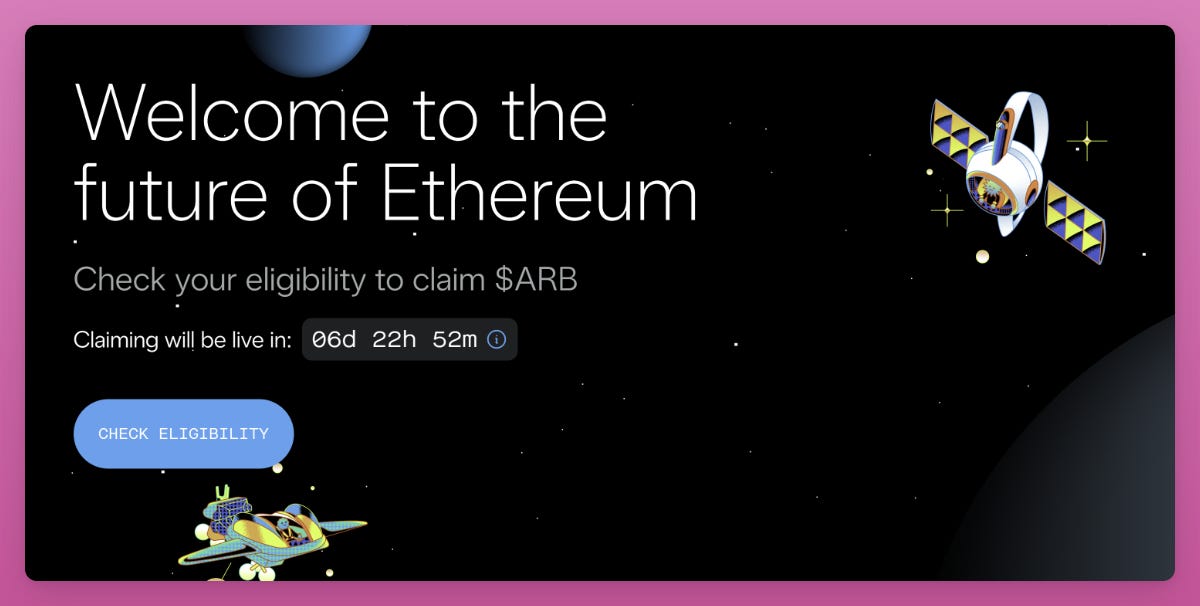Arbitrum Launches $ARB Token and Introduces Self-Enforcing On-Chain Governance
Two big suprises from the announcement: Arbitrum Orbit and Self-Enforcing governance
Arbitrum has just unveiled the $ARB token, a major milestone in progressively decentralizing the Arbitrum protocol. Check if you are eligible here
With the $ARB token, Arbitrum has established a new governance model, enabling decentralized proposals and protocol upgrades.



